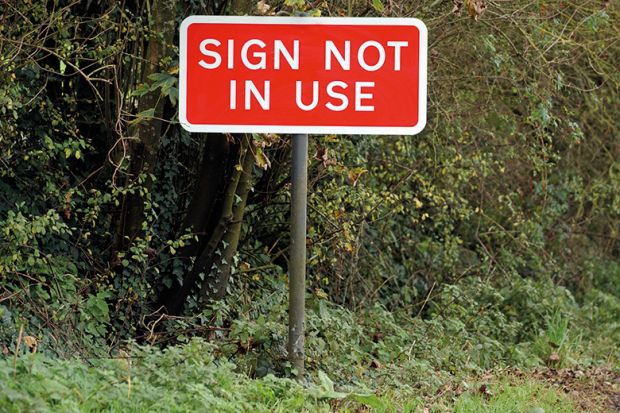Intercountry guidelines for ensuring the quality of transnational education (TNE) may have to be “so general” that they could be “quite useless”, according to the author of a report looking into the issue.
Fabrizio Trifirò, manager international for the Quality Assurance Agency, made the comments ahead of presenting the findings of his paper, “Inter-agency cooperation in the quality assurance of transnational education: challenges and opportunities”, at the European University Association’s 11th European Quality Assurance Forum.
In his paper, Dr Trifirò found that while international quality assurance agencies did often share “information and intelligence” about TNE and many have established “regular channels of communication” with their partners, global higher education was still “quite far away” from achieving a set of guidelines or principles agreed between different agencies.
“Already in Europe we struggle to get some principles,” he said. “The problems [increase] when you go international…there are such a variety of approaches, different policy agendas,” he told Times Higher Education.
“There are a number of challenges for both providers and QA agencies. The most immediate are due to cultural and geographical distance. Because these partnerships are far away, there are more risks involved in quality assuring.”
In his paper, Dr Trifirò advises agencies to create a longstanding “commitment to partnership building” to help facilitate better interagency QA collaboration.
“Recognising the critical importance of building reciprocal trust, and that building trust takes time and resources, agencies are recommended to adopt a strategic approach and long-term commitment to partnership building,” he writes. “This will entail prioritising strategic partnerships and dedicating resources (human and financial) to support regular engagement at different levels of the agency.”
His second major recommendation is engagement with all the key participants in transnational education because “agencies do not operate in isolation, but within broader regulatory systems involving a variety” of other organisations.
“In particular, agencies are recommended to engage closely with government, higher education providers, students and other sector bodies, including professional bodies,” the paper states.
“All those mentioned in the report are equally important to engage with,” he told THE. “The question is when they are restrictive, and may impede or impair more efficient and effective QA for cross-border provision, it’s desirable for agencies to try and engage with governments but we know that engaging with governments isn’t always straightforward.”
Dr Trifirò, however, said that it was “crucial to keep your finger on the pulse of the TNE students” and not forget the principal mission for degrees.
“We’re also talking about the student experience here,” he said, adding that it was important that quality assurance bodies “help harness the potentials that cross-border provisions may offer for societies at large”.
Register to continue
Why register?
- Registration is free and only takes a moment
- Once registered, you can read 3 articles a month
- Sign up for our newsletter
Subscribe
Or subscribe for unlimited access to:
- Unlimited access to news, views, insights & reviews
- Digital editions
- Digital access to THE’s university and college rankings analysis
Already registered or a current subscriber? Login







